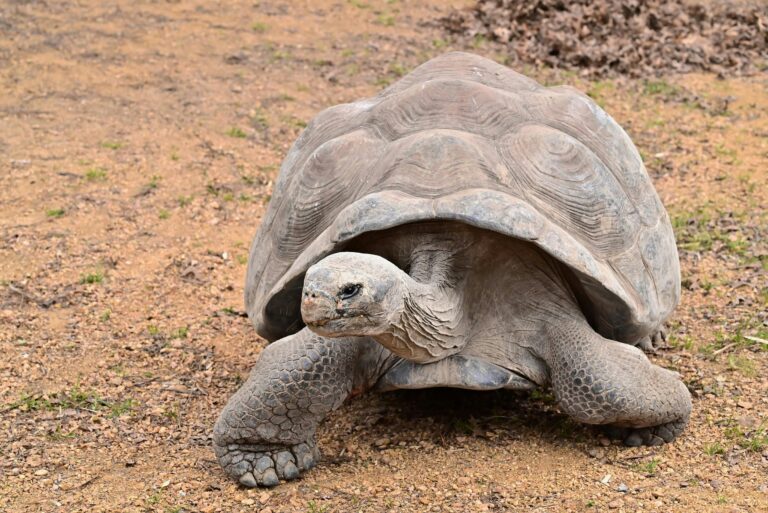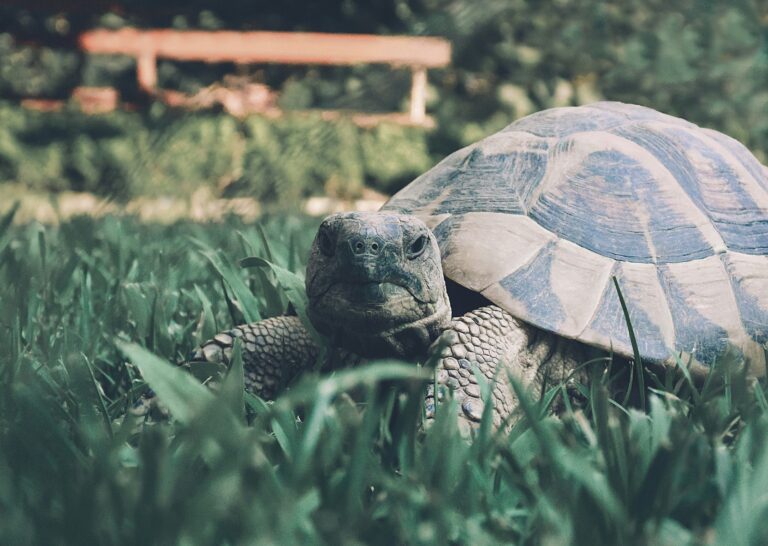Why is my Sulcata tortoise not eating? 3 Secret foods

Sulcata tortoises, known for their lovable personalities and distinct features, are generally healthy feeders. However, it can be alarming if your sulcata tortoise refuses to eat. This blog post will discuss possible causes of a sulcata tortoise’s appetite decrease and offer suggestions for dealing with the problem.
Environmental Stress: They may have a brief decrease of appetite as a result of environmental changes, such as moving to a new enclosure or experiencing routine disturbances. To reduce stress, make sure your tortoise’s habitat is stable and has enough temperature, humidity, and hiding spots.
Health Concerns: A sulcata tortoise’s appetite may be impacted by an illness or underlying medical concerns. Respiratory illnesses, parasites, metabolic diseases, or dental issues can all cause discomfort, making it difficult for the tortoise to feed. See a reptile veterinarian for a comprehensive checkup and suitable treatment if you have any concerns about your pet’s health.
SECRET FOODS:
Pads of Prickly Pear Cactus: Juicy prickly pear cactus pads are a known their favorite food. These pads offer vital elements including vitamins and minerals in addition to being hydrated. Give your tortoise some fresh slices of prickly pear cactus pads as a tasty and healthy treat.
Edible Weeds: A variety of edible weeds are not only nutritious but also safe for sulcata tortoises. Plantain, chickweed, dandelion greens, and clover are a few weeds that tortoises frequently enjoy eating. Gather these weeds from places free of pesticides and provide them to your turtle as a pleasant treat.
Hibiscus blooms: It is well known that sulcata tortoises adore hibiscus blooms among other plant blossoms. Not only are hibiscus blossoms beautiful to look at but they can be eaten.

Seasonal Changes: Sulcata tortoises’ appetites may vary in response to seasonal temperature and daylight hours. Tortoises may lower their activity and hunger during colder months or periods of reduced sunlight. Supplemental illumination and heat can help lessen these impacts and promote feeding.
Dietary Preferences: Sulcata tortoises have certain dietary requirements, and adjustments to their diet or the foods they are offered may affect how hungry they are. Make certain that the nutrition you are providing is varied and includes leafy greens, hay, and grasses. Try a variety of foods to determine your tastes and promote eating.
Overfeeding or Obesity: Sulcata tortoises that are overfed may become obese and have decreased appetite or unwillingness to eat. To avoid overindulging, keep an eye on your tortoise’s weight and modify the amount of food it receives as needed. Provide opportunities for exercise and a well-balanced diet to maintain peak health.
Brumation: Sulcata tortoises, like most reptiles, go through brumation, which is a period of dormancy or reduced activity during the colder months. Tortoises may experience reduced appetite or go into a state of
Environmental circumstances: Inadequate environmental circumstances, such as uneven temperature gradients or humidity levels, might have an impact on a sulcata turtle’s appetite. Make sure the enclosure offers the right circumstances for efficient digestive and metabolic activities.

Environmental Stressors: They may get frightened and lose their appetite in response to external stressors such loud noises, predators, or rough treatment. Provide a quiet, haven for your tortoise by reducing agitation and offering hiding spots to reduce anxiety.
Age and Reproductive Cycles: As they mature and grow, young sulcata tortoises may show variations in their hunger. Additionally, adult females may have decreased hunger throughout reproductive cycles or egg-laying times. Observe how your tortoise behaves and provide it the care that is appropriate for its life stage and reproductive status.
In conclusion, A sulcata tortoise’s lack of appetite can be caused by several things, such as dietary preferences, seasonal variations, health problems, environmental stress, and brumation. You may assist in reviving your tortoise’s appetite and maintaining its general health by determining the root problem and taking swift action to rectify it. A healthy and thriving sulcata tortoise requires regular observation, good husbandry, and veterinarian treatment.
Read More: Why is My Sulcata Tortoise Not Growing?5 Health Tips